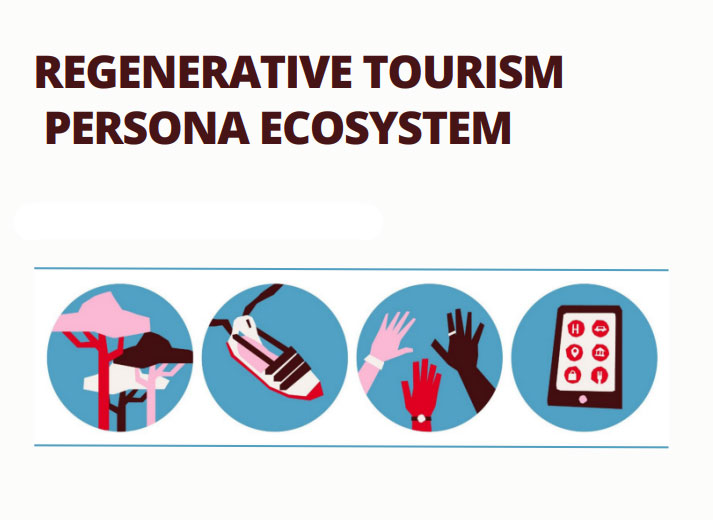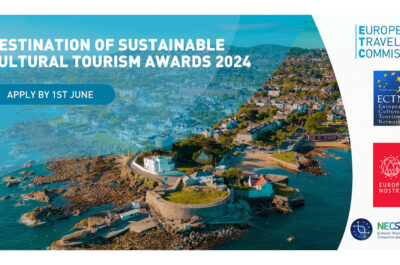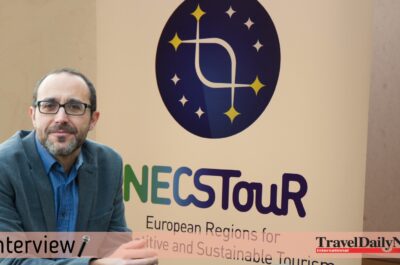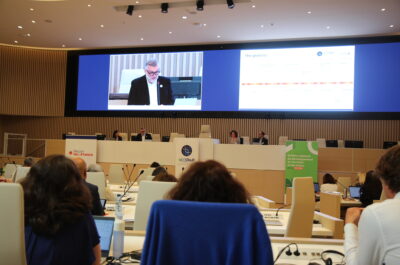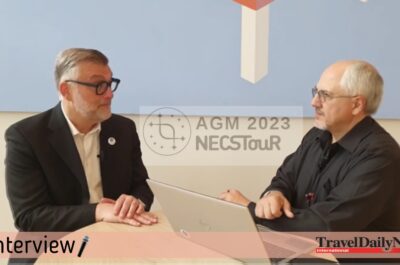Since the conference “Regenerative Tourism contributing to the wellbeing of the community” delivered valuable outputs, NECSTouR and the Catalan Tourism Board, took the opportunity to report on the event through a new release paper: ‘Regenerative Tourism Persona Ecosystem’.
In 2018, the Barcelona Declaration “Better Places to Live Better Places to Visit” was created from the willingness of NECSTouR members to respond to the residents’ concerns about the uses of territorial assets for tourism activity. Since then, local community well-being, as well as the climate emergency and business innovation, are driving the transformation of NECSTouR members’ tourism strategies. This is also reflected in their governance models and marketing focus, moving from a sustainable tourism approach to a regenerative, value-driven model.
Considering the crucial moment of reflection and transformation of tourism models to regenerative tourism ones, Catalonia and NECSTouR organised the Conference “Regenerative Tourism contributing to the wellbeing of the community”. The event was a day of reflection aiming to inspire, share and learn how tourism destinations and businesses are working towards a “value-driven” tourism model wishing to contribute to the community’s well-being (society, environment and business), the so-called “Regenerative Tourism”. This offered a source of inspiration and showcased how territories could deliver on the targets of the Tourism Transition Pathway.
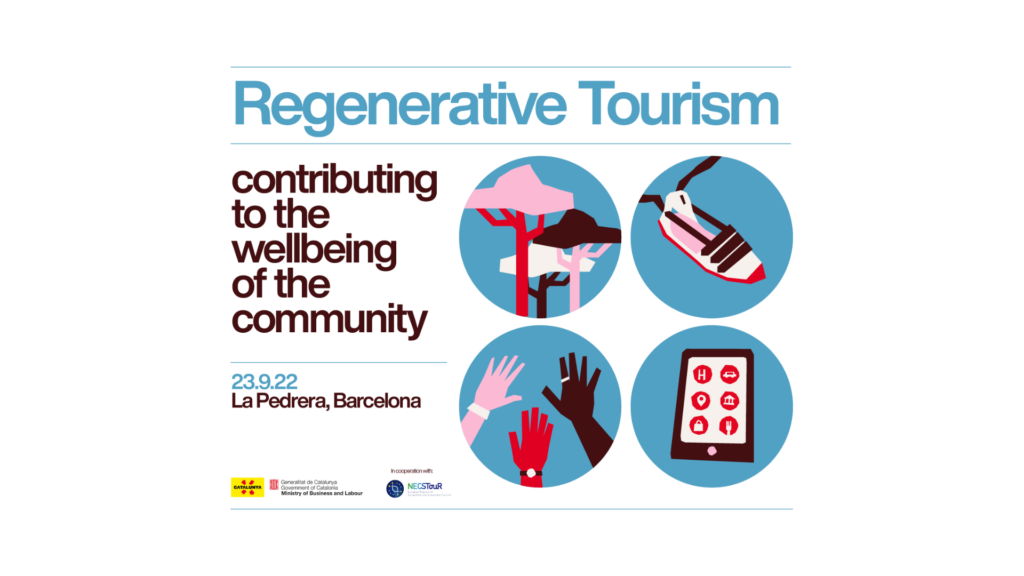
Since the conference delivered valuable outputs, NECSTouR and the Catalan Tourism Board, took the opportunity to report on the event through a new release paper: ‘Regenerative Tourism Persona Ecosystem’. This paper reports on the Regenerative Tourism Conference, organised in Barcelona in September 2022, by Catalonia and NECSTouR. The event’s outcomes are presented through personas representing all players in destinations as part of a living system. The personas described are: DMOs, Businesses, Associations, the Local Community, the Visitor and the Place. All of them were directly or indirectly portrayed during the Conference. This paper has explained each by reflecting on their characteristics and challenges and, is accompanied by real-life cases.
This report is subjective and based on a content analysis of the Regenerative Tourism Conference recordings. It thus is represented as a qualitative holistic interpretation of the presenters’ experience at the event. Due to the subjective nature of this research, we do not seek to generalise these results. Thus, the description is context-based, as personas and situations will evolve and change in different scenarios.
Every persona is described through their characteristics and changing factors and accompanied by real-life cases that make the descriptions even more concrete. Multiple descriptions of personas and their characteristics seem to overlap, which highlights the interconnectivity of the tourism ecosystem, showcased through the image presented beneath (Image 1).
We can link the description of the personas to the Tourism Transition Pathways, particularly the Tourism Transition Topic 5: Collaborative Governance and 26: Tourism services for visitors and residents alike. These pathways pave the way towards the first European Agenda for Tourism 2030. Furthermore, the outcomes of the events can also be referred to as elements of the Barcelona Declaration (2016), Better Places to Live, Better Places to Visit. Therefore, it is suggested from the findings of this analysis that the TTP and Barcelona Declaration can be seen as clear enablers of regenerative tourism.
This report will be presented during NECSTouRs Thematic Conference ‘Delivering Tourism Climate Action’ on the 16th of March in Lanzarote. This Thematic Conference follows a two-day Masterclass ‘Empowering destination leaders to deliver Sustainability’.
NECSTouR is the Network of European Regions for Sustainable and Competitive Tourism. Based in Brussels, it develops Interregional Projects to improve Tourism Governance in Europe. Since 2007 it has undertaken a unique journey, representing today more than 70 organisations around Europe and connecting Regional Tourism Governance with European levels of government, EU financial instruments, Academic Organisations (Universities and Research Institutes) and Private Sector (Representatives of Tourism Enterprises, Associations, and Networks).
Tatiana is the news coordinator for TravelDailyNews Media Network (traveldailynews.gr, traveldailynews.com and traveldailynews.asia). Her role includes monitoring the hundreds of news sources of TravelDailyNews Media Network and skimming the most important according to our strategy.
She holds a Bachelor's degree in Communication & Mass Media from Panteion University of Political & Social Studies of Athens and she has been editor and editor-in-chief in various economic magazines and newspapers.












